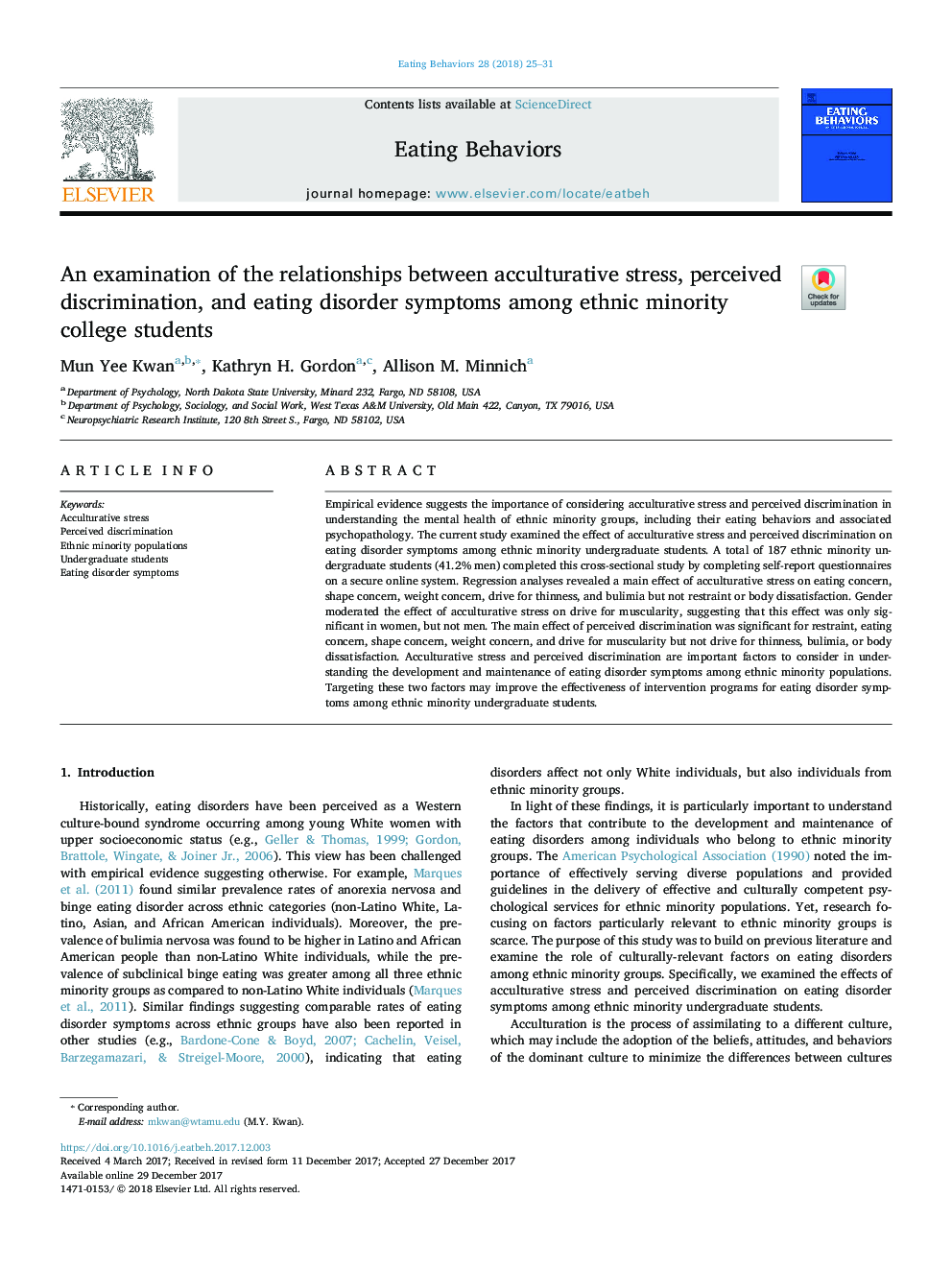| Article ID | Journal | Published Year | Pages | File Type |
|---|---|---|---|---|
| 7264976 | Eating Behaviors | 2018 | 7 Pages |
Abstract
Empirical evidence suggests the importance of considering acculturative stress and perceived discrimination in understanding the mental health of ethnic minority groups, including their eating behaviors and associated psychopathology. The current study examined the effect of acculturative stress and perceived discrimination on eating disorder symptoms among ethnic minority undergraduate students. A total of 187 ethnic minority undergraduate students (41.2% men) completed this cross-sectional study by completing self-report questionnaires on a secure online system. Regression analyses revealed a main effect of acculturative stress on eating concern, shape concern, weight concern, drive for thinness, and bulimia but not restraint or body dissatisfaction. Gender moderated the effect of acculturative stress on drive for muscularity, suggesting that this effect was only significant in women, but not men. The main effect of perceived discrimination was significant for restraint, eating concern, shape concern, weight concern, and drive for muscularity but not drive for thinness, bulimia, or body dissatisfaction. Acculturative stress and perceived discrimination are important factors to consider in understanding the development and maintenance of eating disorder symptoms among ethnic minority populations. Targeting these two factors may improve the effectiveness of intervention programs for eating disorder symptoms among ethnic minority undergraduate students.
Related Topics
Life Sciences
Neuroscience
Behavioral Neuroscience
Authors
Mun Yee Kwan, Kathryn H. Gordon, Allison M. Minnich,
